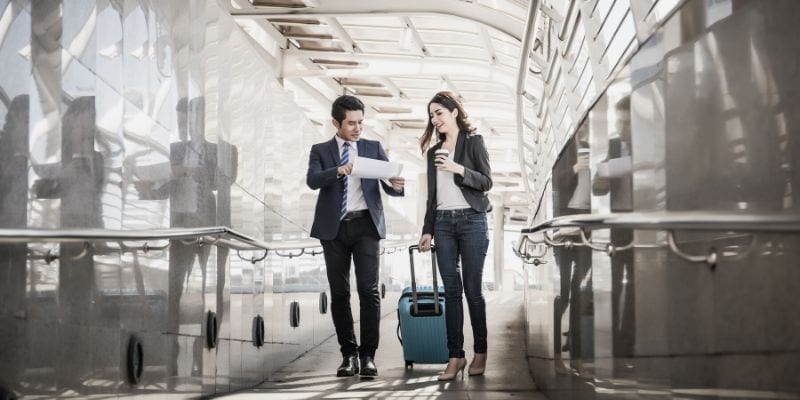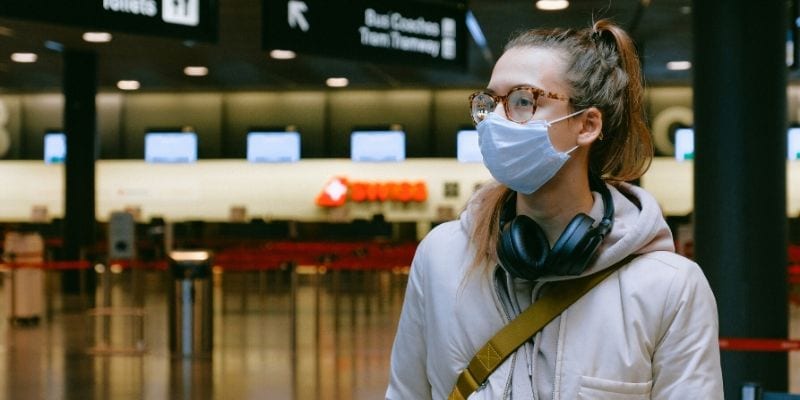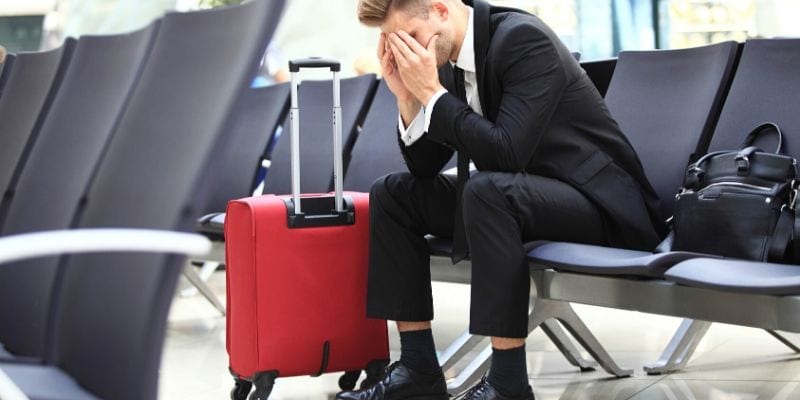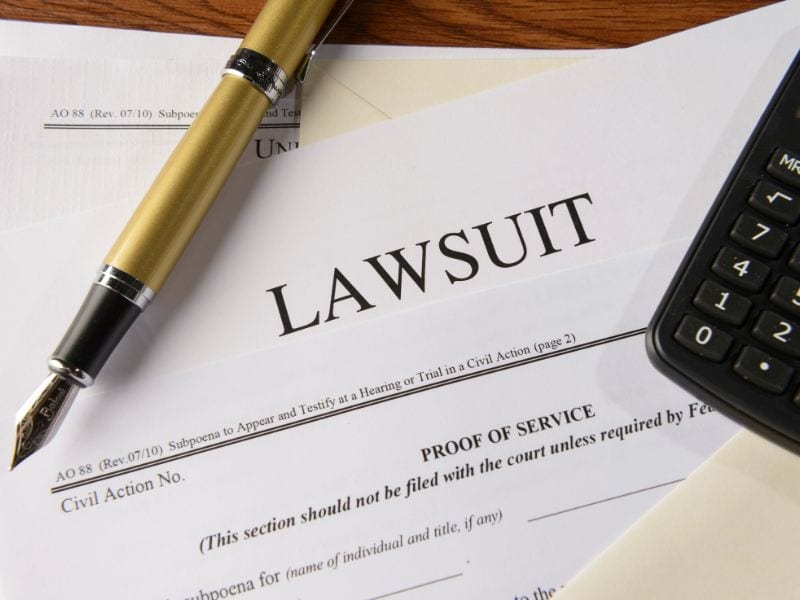Industry travel organizations are lobbying Congress to pass new legislation which would protect companies from liabilities associated with employees who contract COVID-19 on business travel. The proposal is aimed to help jump start a travel industry experiencing Great Depression level unemployment levels.
Business Travel News reported that a collection of travel industry organizations including the Global Business Travel Association (GBTA), submitted a letter to Congress on May 11th outlining a request for legislative action that would provide liability protection for travel providers and companies with traveling employees should they become ill while traveling.
On May 27, a similar letter which included support from many organizations who joined the May 11 note was submitted to Congress by the US Chamber of Commerce. Like the previous submission, the letter urged Congress to act by providing temporary liability relief for companies and and organizations who continue to operate during the global pandemic. Here’s what we know about these two letters.

May 11 Letter
Here’s what we know about the May 11 letter:
- Sent to: Pelosi, McConnell, McCarthy, Schumer
- Sent from: Approx 117 travel industry organizations including, Global Business Travel Association (GBTA), American Gaming Association (AGA) and the National Restaurant Association
- Key Points:
- “We fear that without Congressional action, the threat of litigation – even for those companies that faithfully follow federal public guidelines – will mire our recovery and negatively impact the economy writ large.“
- “Evolving information about COVID-19 and differences in federal, state, and local guidelines, however, have created legal uncertainty. As a result, companies that diligently implement safety protocols and rely in good faith on public health recommendations and guidelines nonetheless face the prospect of substantial litigation based on virus transmission.”
May 27 Letter
Here are the key facts and highlights from the May 27 letter.
- Sent to: “Members of the United States Congress” – generically, to all members
- Sent from: Approx 240 travel and travel related industry organizations including, US Chamber of Commerce, American Medical Association, American Society of Travel Advisors, National Business Aviation Association, the US Travel Association, and many more similar organizations
- The Global Business Travel Association (GBTA) did NOT participate in this letter
- Key Points:
- “The undersigned organizations urge you to quickly enact temporary and targeted liability relief legislation related to the COVID-19 pandemic. These crucial protections should safeguard businesses, non-profit organizations, and educational institutions, as well as healthcare providers and facilities from unfair lawsuits so that they can continue to contribute to a safe and effective recovery from this pandemic.”
- “…as those workers and businesses keep our communities safe and provide for the American people, our members and constituencies are concerned that, despite doing their best to follow applicable guidelines, they will be forced to defend against an onslaught of frivolous lawsuits. The prospect of such litigation and associated exorbitant legal costs are a deterrent to reopening.“
- “Absent a targeted safe harbor for those that work to follow applicable guidelines, the fear and uncertainty from boundless liability threatens to impede our country’s social and economic recovery“
Some states have already acted
Four states have already acted passing COVID-19 liability relief legislation that grants immunity to businesses from any civil claims related to the pandemic. Louisiana, Kansas and Arizona recently advanced legislation to provide similar coverage. The implications for the travel industry are that this would apply to companies who, in the course of their work, have staff traveling.
Should companies be afforded legal liability relief for business travel?

As companies and broader economy restart the question of legal liability for companies whose employees travel for work is a fair one. Business Travel News interviewed Eben Peck of the American Society of Travel Advisors, who commented:
“The general idea in the letters is to provide a temporary liability shield for businesses that follow the applicable federal, state, local and CDC guidelines. We’re thinking of scenarios like, a traveler goes on the road for work, gets sick and possibly dies, company is sued.“
In plain terms, the messages is simple: listen, we don’t want to get sued if an employees gets sick and dies while on company business. The threat of liability for such claims is a potential deterrent to restarting the economy as companies may be wary to send employees back out on the road. In other words, without such liability, companies will be reluctant to send staff back out with only delays the economic recovery – or that’s the theory.
To be clear, what these letters are really saying (if you remember who they come from – companies or organizations who represent companies who provide travel and travel related services) is they think their customers will view lack of liability protection as a barrier to come spend money at their businesses.
Prior to COVID-19, nearly 1.2 million business travelers hit the air each and every day. However, since the pandemic, travel as a whole, and specifically business travel has fallen to historic levels. At the low point, the TSA recorded a paltry 87,523 travelers down from the 2.2 million on the prior year same day. While these levels have risen recently – approaching 400k daily passengers – traffic remains at catastrophically low levels.
As signs of life emerge throughout the travel industry the question remains: will companies start sending business travelers back out on the road? Or will they hold back for a variety of reasons including liability concerns?

For our part, here at the CBoardingGroup, we believe liability will play some part in slowing the return of business travel, but let’s examine other reasons companies may be slow to send employees back out:
- Budgets are tight right now and many companies are slashing their travel budgets for at least the remainder of 2020.
- The success of the work-from-home model is undeniable. Questions about how much business travel is actually needed are being asked in the Zoom meetings and Slack channels of corporate travel planners and executive committees.
- Employees remain reluctant to travel – with many still expressing concern about even going into the office, let alone jumping on a plane for work
- Airlines and travel providers are still a mixed bag when it comes to airline safety measures. For example, face masks are now required by most airlines, but enforcement is difficult or simply not possible.
Moreover, definitively proving an employee contracted the virus while on business travel and/or specifically at or on a specific travel provider may be difficult to do at all. In their piece, BTN offers this comment from Remington Gregg, an attorney for the consumer advocacy group Public Citizen and who believes liability protections are unneeded:
“It is difficult [for a plaintiff] right now without any business immunity to prevail in court for contracting Covid. Why? Because you have to show a direct causal link between a business’s action and you catching it. I catch an Uber, go to the airport, get on the plane, get another Uber and get to the hotel. How am I going to prove where I contracted Covid? That’s not going to prevail in court. You cannot satisfactorily prove the causal connection.“
Providing blanket liability protections for companies concerned about sending employees on the road again, will certainly help remove one barrier to restarting business travel, but other factors linger – and may do so for some time. These factors remain equal, if not greater, obstacles to the return of business travel.
What say you? Should companies receive liability from COVID-19 related illness or death when an employee is on official business travel? Leave us a comment below or tweet us your thoughts.
Note: We are not lawyers here the CBoardingGroup and are not offering legal advice. Go find a pro for that.
Like many of us, you are probably struggling to find your new normal. Perhaps you’ve done that and are simply bored. We’ve got your back. Here’s a ton of recent content that revolves around what’s facing us today, including working from home ideas, what to watch, things to read, and how to avoid boredom. Enjoy.
Affiliate Disclosure: As an Amazon Associate I earn from qualifying purchases. I may also earn commissions from other affiliate programs as applicable.


2 comments
Given asymptomatic and presymptomatic spread, and the long period from exposure to symptoms where they do manifest, the notion that it’ll be possible to show where someone was infected is far fetched. Not that there won’t be lawsuits, there will certainly be *some*, but the risk here is very low.
That said if you care about track and trace you want liability waivers so that companies are willing to be transparent about people who do get sick.
100% agree about 1st point, Gary and I think the 2nd makes sense although highlights one (of many) problems with track and trace approaches.